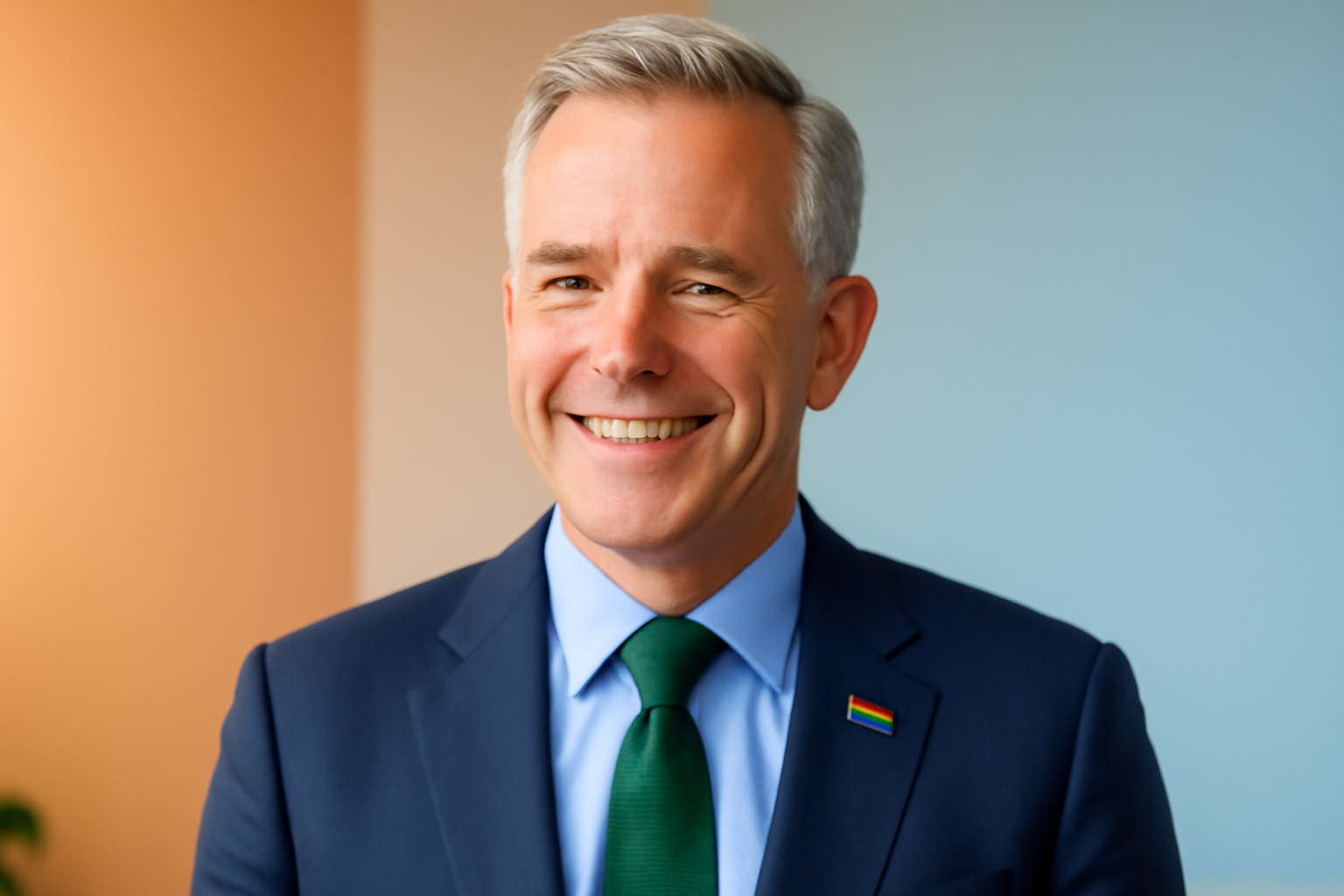
In a recent discussion, Ambassador Rufus Gifford shared his critical perspective on the current state of American diplomacy under the administration at the time. Highlighting the treatment of international allies, particularly President Volodymyr Zelenskyy of Ukraine, Gifford expressed deep concerns over the diplomatic strategies being employed.
In Gifford’s view, effective diplomacy is rooted in mutual respect and a commitment to upholding the values of democracy and cooperation. This approach has historically been the cornerstone of American foreign policy, fostering alliances based on trust and shared goals. However, recent developments have raised questions about the consistency of these values in practice.
Challenges in American Diplomacy
According to Ambassador Gifford, the dynamics between the United States and Ukraine were indicative of larger issues within American foreign policy. He argued that the treatment of President Zelenskyy reflected a broader trend of undervaluing key international partnerships. This, in turn, could undermine decades of diplomatic progress and stability in the region.
Ambassador Gifford elaborated that the implications of strained diplomatic relations extend beyond immediate political disagreements. They have the potential to weaken alliances that are crucial for addressing global challenges such as security threats, economic instability, and humanitarian crises. The ambassador stressed the importance of maintaining strong, positive relationships with allies to effectively navigate these complex issues.
The Role of Diplomacy in Global Leadership
Gifford emphasized that diplomacy is not merely about negotiation but also about embodying the principles of democracy and respect on the global stage. He pointed out that the United States has long been viewed as a leader in championing these ideals. Therefore, it is imperative for American leaders to demonstrate consistency and integrity in their dealings with international counterparts.
The ambassador also noted the role of public opinion in shaping diplomatic outcomes. He urged American citizens to remain informed and engaged with their country’s foreign policy decisions. Public discourse and civic engagement, he argued, are vital for holding leaders accountable and ensuring that diplomacy reflects the values that citizens wish to uphold.
Looking Forward: A Call for Reflective Diplomacy
In concluding his remarks, Ambassador Gifford called for a renewed commitment to reflective diplomacy—an approach that prioritizes introspection and long-term vision. He suggested that American leaders take a step back to evaluate the impacts of their decisions not only on immediate geopolitical interests but also on the broader framework of international relations.
This approach, according to Gifford, requires a commitment to transparency, communication, and respect. It involves listening to allies, understanding their perspectives, and working collaboratively to address shared concerns. By doing so, the United States can rebuild trust and reassert its role as a steadfast and reliable partner on the world stage.
Ambassador Rufus Gifford’s insights serve as a reminder of the importance of upholding the principles of diplomacy and respect in international relations. As the world continues to face complex challenges, the need for strong, positive diplomatic relationships is more critical than ever.
Ultimately, Gifford’s vision for American diplomacy is one that champions cooperation, mutual respect, and a commitment to democratic values. These ideals, he believes, are foundational to maintaining global stability and ensuring a prosperous future for all.
As discussions about the future of diplomacy continue, it is clear that the perspectives of experienced diplomats like Ambassador Gifford are invaluable in shaping the path forward. By reflecting on the past and considering the future, nations can work together to build a world that prioritizes peace, justice, and equality.
The dialogue surrounding these issues is vital for fostering a more inclusive and effective approach to international relations. It is through such conversations that countries can learn from one another and collaborate in addressing the challenges of today and tomorrow.
Related Posts
Jacob Elordi Shines in a Queer Love Story "On Swift Horses"
Jacob Elordi's latest film, "On Swift Horses," might leave you guessing at first, but at heart, it's a deeply moving queer love story. It's an adaptation from Shannon Pufahl's novel, brought vividly alive by director Daniel Minahan and writer Bryce Kass, weaving together themes that explore love, identity, and self-discovery on many levels. Love unfolds in 1950s America Step back in time with "O [...]
Creating New Models for LGBTQ+ Parenting: Embracing Community and Visibility
Empowering parenthood: envisioning a truly inclusive future "I'm all in when it comes down helping people realize their dreams about becoming parents," says Marea Goodman. She's not just a midwife; she's an author and founder who built Pregnant Together, an inclusive community with a heart. Goodman passionately believes that everyone, no matter who they are, deserves a shot at parenting. With tw [...]
Study Reveals Satisfaction Parity in Monogamous and Non-Monogamous Relationships
Rethinking relationship satisfaction: monogamy or not? There's a fascinating study from *The Journal Of Sex Research* that's turning some heads regarding relationship satisfaction. It's called "Countering The Monogamy-Superiority Myth," and it dives deep, challenging long-held beliefs about whether monogamous or non-monogamous relationships are more satisfying. Spoiler alert: it's not as clear-cu [...]